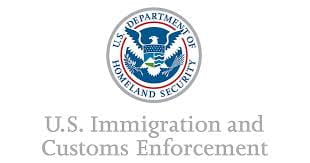Ashley Brittania
Contributing Writer
The coronavirus pandemic has caused major disruption in the normal proceedings of everyday activities. It has forced a shutdown on the major economic activities for which a country runs. This meant the closure of schools of all academic levels and forced all students and staff to transition to an online platform of teaching and learning.
Non-immigrant students, such as F-1 and M-1 students, are usually only allowed to take one 3 credit course online; however, the special circumstance caused ICE to grant exemptions to these students allowing them to take their full course load online for the remaining of the spring and summer semesters.
Following this exemption was the option to remain in the United States and take these classes or return to their home country; whichever may be possible for the student’s situation. This change would also allow students to remain in legal status.
However; on July 6, 2020, ICE issued new guidelines to F-1 and M-1 students ending this exemption and required students to take in-person classes or adapt to a hybrid model, which is a combination of in-person and online classes. If the student’s university or college remains online despite this, they must leave the country or transfer to another school that would meet these criteria.
These new guidelines were not as simple for the many 1,095,299 international students nationwide. Thus, this posed many challenges for the students as most schools have not made any plans for returning to in-person instruction in the fall, and the process for a transfer takes months to complete. Not to mention, by this time, several countries have already closed their borders to U.S travelers.
This sent many students and schools into frenzy as institutions began rushed plans to issue updated documents to students, and hold some in-person classes. Not only would this policy negatively affect many international students, their respective schools would have also been negatively impacted. As not only were they unwilling to risk the health of their students and staff, but they also generate a lot of their income from the enrollment of international students.
This policy would have seen a decline in foreign student enrollment; as the policy would have affected the ability to obtain a student visa if classes are held online, thus causing a disruption in much needed funds to keep these institutions afloat.
A Broward College international student, Davene Cousins, expressed their view on the situation; “The policy affected my ability to focus on my finals as I constantly worried about being deported. It was an inconsiderate move given that I had invested a lot of time and money to pursue my studies here, and this has negatively influenced my view on studying in the U.S overall,” said Cousins.
One of many worries and concerns expressed among the college’s international student body, however; those fears soon turned to joy as after a week of the new policy change, universities such as Harvard and MIT, along with over 200 other prominent schools, filed a lawsuit against the Trump administration for the new guidelines that would’ve negatively impacted many current and prospective F-1 and M-1 students.
Successfully winning the lawsuit, the guidelines were immediately rescinded resulting in the continuation of the exemption originally granted to students in March. Along with exemptions to students who managed to travel back to their home countries, allowing them to continue their studies without the risk of visa termination. New international students were also able to obtain student visas whether or not their schools are returning to in-person instruction in the fall.
